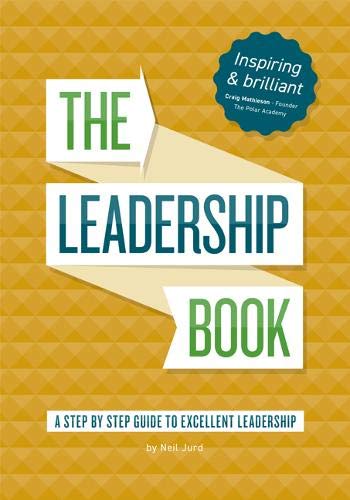Drawing on his time in the British Army, Neil Jurd shares what it takes to become a leader people can rust in this special interview with CEO.digital. Learn more about how to connect with your team and encourage them to deliver their best work, right here…
When most people say they chase the sunshine, they just mean they love to sunbathe. For Neil Jurd, chasing the sunshine was a little more literal. Born and raised in Bromley, South East London, Neil joined the British Army at a young age and subsequently chased the sun all around the world during a decorated career. Stints in Cyprus, Belize, and Sierra Leone were followed by a tour in Iraq in 2006/07 leading a Gurkha platoon during troubled times. He became a reservist with the rank of Lieutenant Colonel and had 185 soldiers under his command at one point.
But chasing the sun didn’t only teach Neil how to keep a cool head; his career has taught him a thing or two about what it takes to lead people. Since his time in the Army, Neil has become an esteemed leadership coach and author. Now, following the release of The Leadership Book and accompanying video course, Neil hopes to bring his insights and lessons to anyone wanting to become a leader themselves – because anyone can become a great leader.
Meet Neil Jurd
Leadership Coach & Author
Neil Jurd is a specialist leadership coach and course director, who has held many senior appointments in the Regular Army and in Industry. More recently Neil has produced a series of leadership videos which are now widely in use across sectors, and his book ‘The Leadership Book’ receives excellent reviews.

A Leadership Coach in the Making
We’ve already covered Neil’s journey within the Army, but his role within the military didn’t stop there. He became an instructor at the Royal Military Academy Sandhurst, where he developed leadership in young officers. He played an integral role in selecting and training future leaders. Then, in 2009 he settled in the Lake District, moving there with his wife and two daughters. Tragedy struck when Neil’s wife died in an accident soon after, and Neil left his role as Head of Logistics at British Sugar to look after his children.
In time, however, Neil’s leadership skills were sought out once again. He was asked to give talks on leadership at Richmond Events. Since 1990, Richmond Events have organised over 900 Strategic Business Forums in the UK, US, Switzerland, and Italy. These talks preceded sessions at other reputed institutions, where Neil delivered inspirational insights to the next generation of business leaders. In time, he was approached by The Leadership Trust, who asked him to become a Course Director. Neil has since instructed hundreds and potentially thousands of business leaders and would-be leaders around the world.
But how did he come up with his approach? Over the years, working with a wide range of industries and peoples, Neil worked out the secrets to successful leadership – and it turns out we all have the skills already to succeed.
Lockdown? Time to Hit Record
Something that had been on Neil’s mind for a long time was the thought that his ideas could really help a lot of people. But in-person courses, by their very nature, are often limited to just a select few attendees. When lockdown hit in March 2020, however, even those select few had to go without hearing Neil’s insights. All work just stopped, leaving Neil, like most of us, with more free time on his hands than he’d had in years.
“I wasn’t worried at the time,” said Neil, “as what I ended up doing was writing.” He took to putting to paper all his ideas that he’d built upon since entering the military and coaching organisation leaders up and down the country. It helped that Neil has always enjoyed articulating his thoughts on leadership!
Neil’s first job was to write a series of talks on the key aspects of leadership. Then, in Summer 2020, he took up residence in his local church’s spare room to record videos of each of the talks. These bitesize lessons on leadership are down to earth and insightful in equal measure. Some NHS Trusts now use them to educate their leaders.
While never having set out to do a video course like this, or the subsequent book, Neil’s happy with the result. “Product as end result by accident isn’t what usually happens in leadership!” Perhaps not, but the video course has now also been turned into a successful book, opening up opportunities for even more people to learn what it takes to take charge. But what are those secret lessons?

People expect a leadership course to be theory heavy and they come on worried. But the leadership is already in them. When you show them it’s there, they’re always surprised.
Neil Jurd Leadership Coach & Author
What Are the Secrets to Successful Leadership?
According to Neil, people mystify leadership. They believe there’s some secret to success. But they couldn’t be more wrong. Leadership is simple, really; it is about connection and direction.
To be a leader, you must be able to connect with your team, regardless of the scenario, and you can only connect with them by being authentically yourself. “The essence of leadership is being good with yourself,” said Neil. Only by being good with yourself can you be good and connect with others in a natural way. “Any good leader that you know will have been quite natural with you; they would have been very unlikely to have been commanding,” explained Neil.
“People expect a leadership course to be theory heavy and they come on worried. But the leadership is already in them. When you show them it’s there, they’re always surprised.” In the past, Neil has heard of people who thought that being a good leader meant always ending a conversation, that they are always listened to. But that isn’t what anyone wants. “No one wants to identify with this leader, so why would anyone want to connect with them?”
In addition to connections, Neil is keen to point out that passion and purpose should be a driving force behind who leaders are. Only with a clear sense of direction can a team truly deliver. Neil learned this lesson in particular in the army. The concept of “mission command” is the idea that you make it abundantly clear what you’re trying to achieve in a given scenario. Everyone in the team is then responsible for working towards that objective. You have a chain of command, but above all the mission objective takes priority. The opposite would be to invite delay and possibly the unaccomplishment of the objective. One reason for this, for instance, is that “if all leadership goes through one person [in a hierarchical model],” Neil said, “not much activity can happen as then everyone is waiting for someone with the control” to sign off everything.
The role of someone at the senior level should therefore be to stop and think what the next best step would be, and then communicate that to the team so they can act on it how they see fit. “Impact at a senior level is occasional but very significant, so it’s okay to stop and think and even take a day off to think,” argued Neil, stating that the alternative would be to operate in a mindless way.
Relationships Are Everything
What is apparent in talking to Neil is how much strong relationships play in strong leadership. Without them, friction enters the organisation and focused thinking simply cannot happen. Neil has a word of advice for those leaders experiencing friction:
“Take time to connect with people and understand what they’re trying to achieve, understand their priorities. You’ll soon see why there’s friction.”
And once the friction sets in, it can be nigh on impossible to dislodge it. Negative relationships occur when trust is lost, and like a house with an old boiler, no matter how much energy you put into it these negative relationships will unnecessarily waste or lose a lot of energy.
So, what are the negative leadership traits to avoid? Neil described “red zone leadership” as anything that includes telling someone off unnecessarily, swearing, lack of control, and even micromanaging as elements that could foster a negative relationship.
Likewise, any input that makes someone defer to you changes the orbit of leadership. If you’re a boss who wants to be copied in to emails, and has gotten angry at an employee when this wasn’t done, has created a feedback loop of negativity. Not only is the employee now potentially scared of approaching the boss, but they are also less likely to come up with and act on ideas of their own. They won’t take risks that could grow the organisation in a positive way. What’s more, these bosses will have created more work for themselves because their inbox will become inundated with emails they believe they must work through. This is zero-sum game where nobody wins and relationships sour.
But there is another way. By being nice with a purpose, you maintain positive relationships across the business and make it a genuinely great place to be. “The best way to show that your company is a great place to be is to make it a great place to be,” said Neil. It’s no use going in for awards from external bodies to showcase your company culture. If people love working there, they will say it, and they will stay. However, a company built upon negative relationships will have a high turnover, pay over the odds to keep staff, and see lower levels of productivity.
Ultimately, “leadership isn’t rocket science,” said Neil. It’s about connecting with people and having a purpose. And you can find out how to hone these skills in yourself in Neil’s new book…
Get Your Copy of The Leadership Book
Neil’s book is now available to buy online. The Leadership Book encourages and enables effective leadership. Leadership is a simple but powerful concept which anyone with an open mind can apply. It’s about knowing where you are going and recruiting others to help. And it can be learned. Split into four easily accessible chapters, The Leadership Book helps you better understand leadership, people and ultimately how to lead individuals and teams. Get your copy today!







